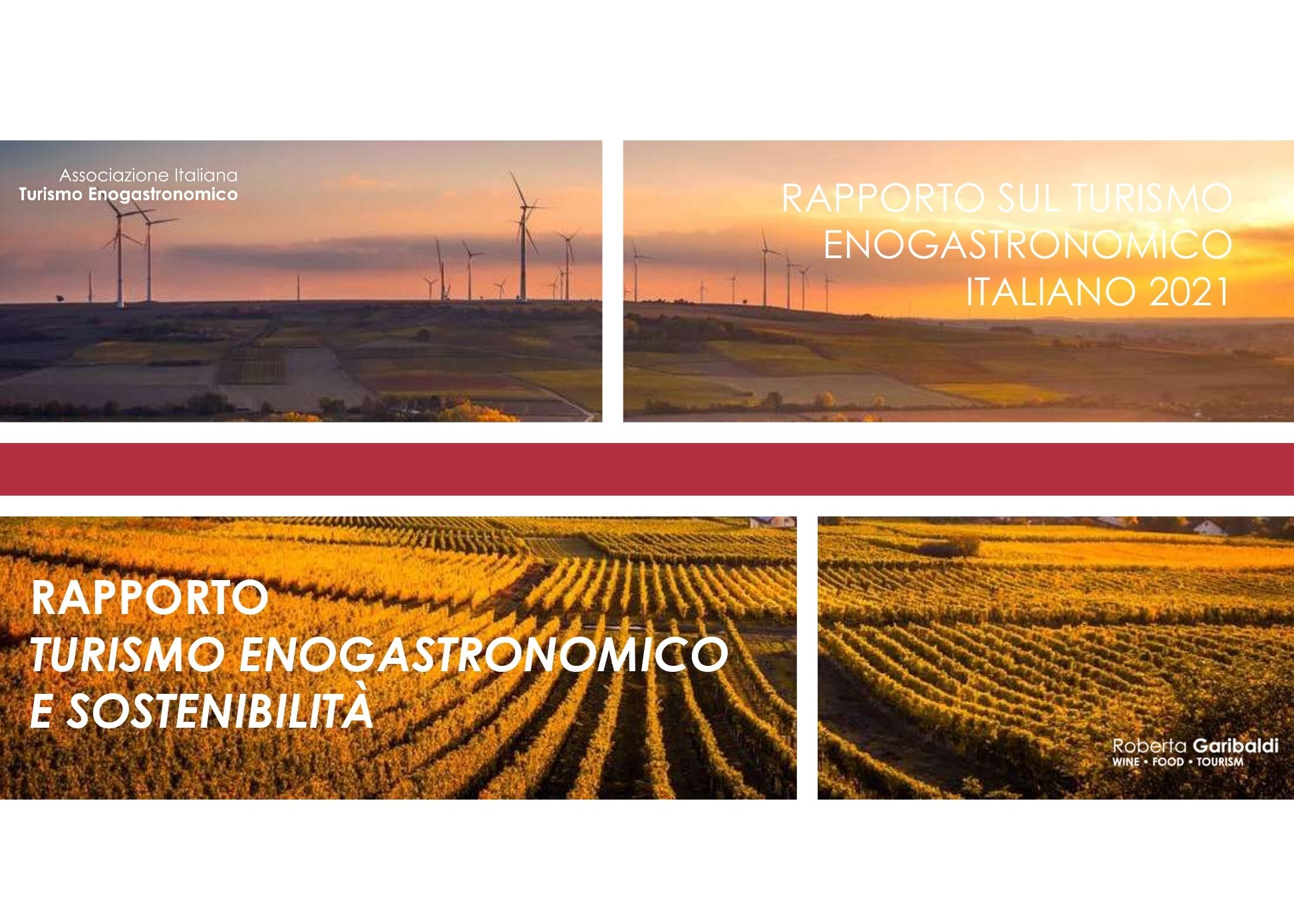
 Roberta Garibaldi
Roberta Garibaldi
Italian report: Enogastronomic tourism and sustainability
- WTI Magazine #144 Oct 16, 2021
-

 Roberta Garibaldi
Roberta Garibaldi
Tourism can play a key role in the sustainable development of the territories because, when adequately planned and managed, it can help to protect and enhance environmental, social and economic resources. The World Tourism Organization believes that a tourism that is connoted in a sustainable sense can contribute to achieving all the goals of sustainable development indicated by the United Nations.
The tourism industry is not, however, climate neutral. It is estimated that, as of 2019, the activities directly and indirectly related to it are responsible for 11% of greenhouse gas emissions (Skift Research, 2021). It is therefore important to work to ensure that environmental impacts are reduced while maximizing social and economic benefits. In particular, of the most disadvantaged territories, for which the negative impacts of tourism often tend to be greater.
Today, sensitivity towards sustainability is widespread among tourists, and it cuts across all travel motivations, it is not limited to the environmental component alone. And, often, it translates into appropriate behaviors: 7 out of 10 Italians avoid wasting food when they go to restaurants (including those of where they live) and adopt environmentally friendly behaviors.
How sustainable is Italy? In the last ten years the progress of our country has been remarkable, but the pandemic has unfortunately accentuated some of the previous criticalities, especially in terms of wellbeing of the population, quality of education and social equality. It is the South and the Islands that present the least positive picture.
The agro-food industry represents excellence in this respect. Almost all agricultural companies have at least one initiative in place aimed at improving the efficiency of resource use - water, soil, energy - while around two-thirds make the most of human resources and strive to maintain high standards of safety at work. In the area of economic sustainability 75% of Italian companies adopt internal risk management initiatives (e.g. insurance policies) and 60% of companies engage in ongoing relationships with the local community (Reale Mutua and Confagricoltura, 2020).
What about food and wine tourism? Having farms that constantly strive to improve their performance in terms of sustainability is an excellent starting point. However, this does not imply that the tourist experience is sustainable, as what the companies are doing is closely tied to the production area. It is important that all components of the tourism experience become sustainable across the board. Therefore, tourism services should be analyzed and sustainability should be brought into these areas as well.
Tourists, especially those who travel with the primary motivation of food and wine, appreciate proposals and services that are characterized in this sense, and this can represent an incentive for companies and who, in general, offers enogastronomical experiences. As for about environmental sustainability, food and wine travelers and generalists would like the experience to adopt, first of all first of all, that the experience adopts a green approach in waste and packaging management. Other aspects are the use of recycled paper for posters and brochures, sourcing from suppliers which adopt organic and/or biodynamic farming practices.
Moving on to social and economic sensitivity and responsibility, today this too is an important driver of choice. As far as individual companies are concerned, adoption of ethical policies is the most considered aspect; followed by the possibility of living experiences in close contact with producers. For tours and events, on the other hand, it is important that they are short chain. All tourists want to taste local and/or organic products, as well as buy souvenirs and specialties of local companies. But this need is not linked to purely hedonistic reasons: it can also express the desire to support the local economy and community through their trip, especially if it happens in companies or stores that have faced or are facing situations of economic and/or social hardship.
How to create sustainable food and wine experiences? Thinking about production companies, it could be useful, for example, to be sustainable in the "little things" such as using recyclable materials and/or being plastic-free, sourcing from local suppliers. Also, educating on sustainability; enriching visits with explanations on the nutritional values of products and health benefits; making the tourist a "protagonist", with proposals in contact with the local community such as spending a day with local producers; being creative and innovative, widening the view towards new possible combinations such as sustainability and wellness.
Moving on to food tour organizers, as an example they could choose local suppliers that adopt sustainable approaches, such as green accommodations, farms with certifications, stores that buy from local producers or are facing hardship situations. They could decide to tell the story of sustainability during the experience, for example by explaining local customs and traditions, while making sure that all participants respect them. They could try to create a positive and relaxed atmosphere, and to approach the topic of sustainability with a certain emotional "lightness". And finally, they could consider using new technologies, for example by replacing brochures and paper guides with apps.
Sustainability is not, however, an aspect that concerns operators alone. In the future, destinations will be called upon to lead this change, which in some ways represents a cultural shift. Whoever governs tourism should hopefully raise awareness among all those involved, tourists, operators and residents, and act to make them responsible. For example, by spreading knowledge and best practices, incentivizing and/or regulating aspects linked to the environment, culture and the economy. And, if this is considered a feasible objective, adopting sustainability certifications - which, as will be seen in the report, are becoming increasingly widespread throughout the world.
It is worth remembering here that sustainability is now also a driver for choosing a destination, not just a single experience. As many as 7 out of 10 Italians - regardless of the reason for travel - appreciate being able to practice activities with low environmental impact and having an efficient public transport network at their disposal. Equally strong is the desire to get in touch with the local community.
To make a destination sustainable, specific actions can be taken that cut across other economic sectors. For example, seek to sustainably manage environmental resources; improve energy consumption and waste management; promote sustainable mobility; strive to maximize benefits to the local community; support businesses; and protect cultural heritage.
Crucially, sustainability needs to be communicated. That's why the communication flow starts before the experience, for example by highlighting this aspect in the brochures, website, social media of destinations and food and wine tourism operators. As well as in the course of digital tastings, today more and more tools to make a pre-experience of the company. Communication can continue during the journey, by making the tourist aware of the commitment of the company and of the destination on the subject of sustainability and by showing him or her how he or she can contribute - an aspect appreciated by food and wine tourists in particular. In this way the choice of going towards sustainability can be rewarded in the market.
The “Rapporto sul Turismo Enogastronomico Italiano 2021” by Prof. Roberta Garibaldi is available (in Italian) here.